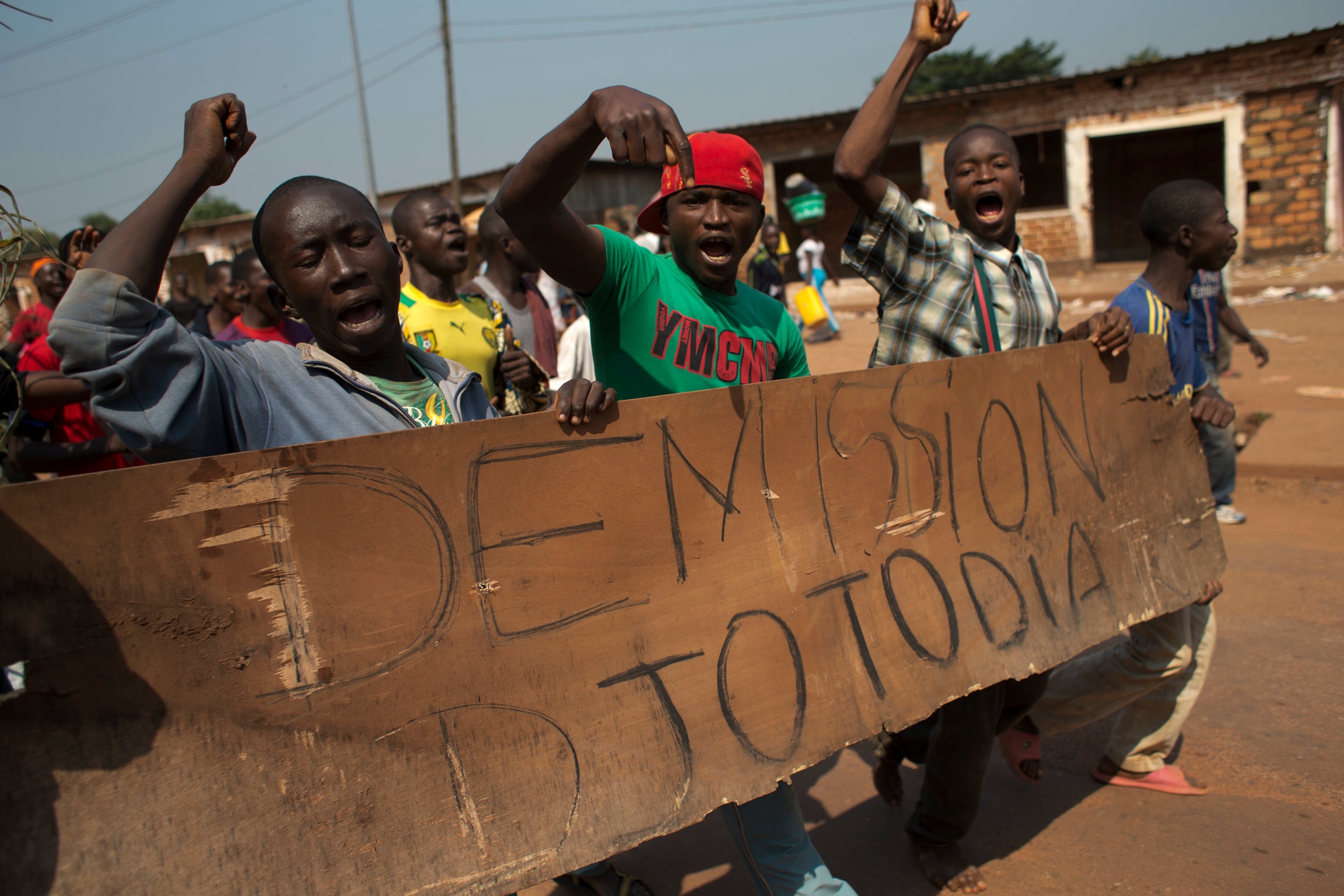
Editor's Note: This blog was written by Enough Project intern Holly Kallmeyer
With a ceasefire recently signed in Brazzaville and a new U.N. mission preparing to deploy to the Central African Republic (CAR), civil society groups are seeking ways to promote local reconciliation processes and a role in encouraging peace more broadly across CAR. During or in the wake of other conflicts, civil society has helped lay the groundwork for peace in several ways, including by facilitating dialogues to build public support for reconciliation and a lasting peace agreement from a grassroots level. Understanding the different means by which civil society groups have been involved in promoting peace in other contexts can lend insight on civil society’s role in developing sustainable peace in CAR.
During Northern Ireland’s Troubles, civil society organizations played important roles in reducing religious friction between Catholic and Protestant communities. At the local level, the Community Relations and Christians (CRAC) movement connected religious leaders of different communities to one another during the late 1980s. Maureen Hetherington, the organizer of CRAC, used her civil society connections to bring together leaders of the four main churches in Northern Ireland, which had previously not played an active role in the peace process. She engaged them in workshops to use religion as a tool for overcoming divisions. These religious leaders were then able to bring messages of reconciliation back to their parishioners. At a national level, the Columba Community organized public and high-level repentance services, inter-faith gatherings where people were encouraged to ask for forgiveness for the roles they had played in the Troubles. In Northern Ireland, these civil society groups provided a ground-level mechanism for reconciliation, while the formal peace process largely took place behind closed doors. By the time the Good Friday Agreement was signed in 1999, these civil society groups had already built public support for reconciliation. In CAR, there is an opportunity to initiate similar grassroots religious reconciliation amid more formal peace initiatives. One group of inter-faith religious leaders began to promote religious reconciliation at a national level before the current peace process had begun.
After Sierra Leone’s conflict, civil society groups were instrumental in bringing traditional reconciliation processes to communities as the Special Court for Sierra Leone was investigating the widest ranging crimes committed during the war. In the spring and summer of 2008, the Sierra Leone-based Forum of Conscience helped to organize Fambul Tok (Krio for “family talk”) reconciliation events. These events were hosted and run by villages themselves and based on traditional notions of reconciliation and forgiveness. In village gatherings, victims told their stories and perpetrators were encouraged to ask for forgiveness from victims or their families. Here, the emphasis was placed on person-to-person reconciliation with the goal of also reintegrating former combatants into their communities. The bottom-up Fambul Tok sessions engaged individuals in the reconciliation process and gave victims a voice and a means to have their grievances heard and acknowledged. Like in Sierra Leone, many villages in CAR have been torn apart by violence. Traditional reconciliation practices can help communities and individuals heal.
East Timor’s La’o Hamutuk NGO coalition ensured civil society participated in internationally-led reconstruction projects. La’o Hamutuk was created in 2000 after East Timor’s violent independence from Indonesia. The organization, which began as a coalition of local NGOs, has grown in the years since it was established. It has conducted regular and thorough investigations into the presence of international organizations in East Timor to ensure that the country’s reconstruction, led by the U.N.’s peacekeeping mission, involves East Timorese citizens. As international and regional actors are increasingly involved in CAR’s peace process, local organizations can have an important role to play in individually and collectively holding external actors to account and ensuring local ownership of the post-conflict reconstruction process.
Civil society actors can play crucial roles in peace processes, particularly when high-level initiatives involving the international community fail to fully address local needs. Grassroots organizations can be well-positioned to bridge gaps and help communities and individuals heal if they are recognized as a critical component to lasting peace and given the support they need. While conflicts beyond CAR can provide ideas for civil society involvement, Central Africans will develop, lead, and implement community reconciliation efforts in ways that best fit the local context.
Photo credit: AP Images

